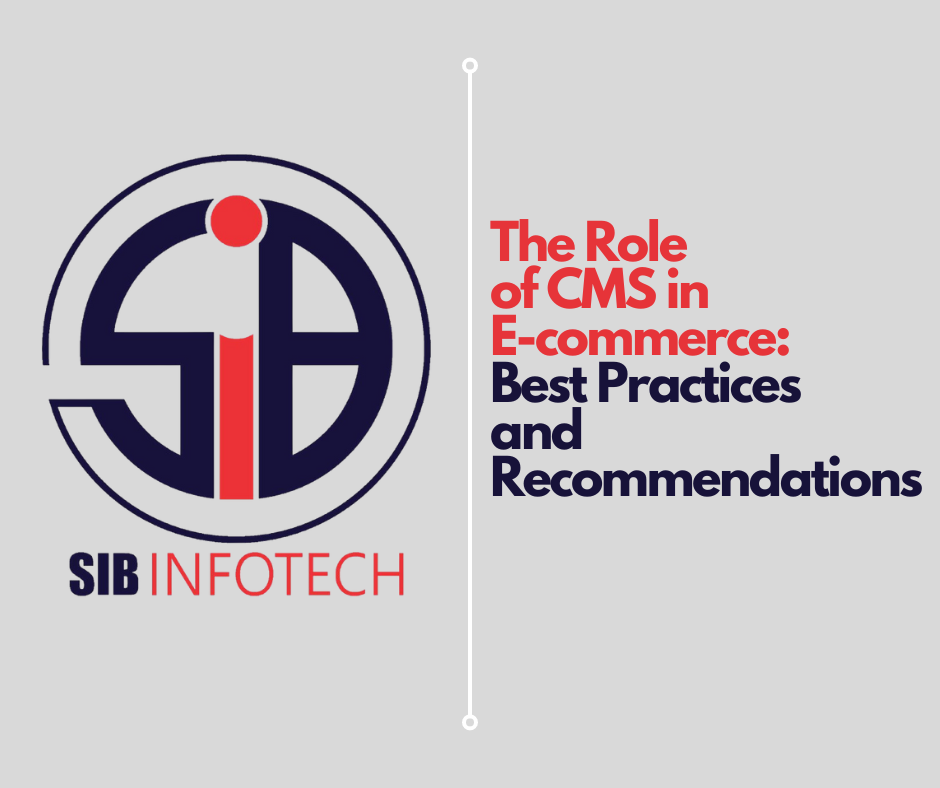The Role of CMS in E-commerce: Best Practices and Recommendations
Introduction: In the ever-evolving world of e-commerce, the choice of Content Management System (CMS) can significantly impact the success of your online business. At SIB Infotech, we understand the importance of making the right CMS decisions to enhance the e-commerce experience. In this blog post, we’ll delve into the crucial role of CMS in e-commerce and provide best practices and recommendations to help your online store thrive.
The Significance of CMS in E-commerce
The Content Management System (CMS) you choose for your e-commerce website serves as the foundation of your online presence. It not only influences how you manage your content but also plays a crucial role in the overall user experience, SEO, and even security. Here’s why CMS matters in e-commerce:
- Streamlined Product Management
A robust CMS simplifies the process of adding, updating, and categorizing products. At SIB Infotech, we recommend CMS platforms that provide user-friendly interfaces for managing your e-commerce inventory.
- SEO Optimization
Search Engine Optimization (SEO) is paramount in e-commerce. A CMS that allows for easy optimization of product descriptions, meta tags, and structured data can significantly improve your search engine rankings.
- Responsive Design
Mobile-friendliness is essential for e-commerce success. which we recommend at SIB Infotech, offer responsive design features to ensure your site looks great on all devices.
Best Practices for Choosing the Right CMS
Now that we’ve established the importance of a CMS in e-commerce, let’s explore some best practices for selecting the right one:
- Identify Your Specific Needs
Consider the unique requirements of your e-commerce business. Moreover, Do you need advanced inventory management, integration with payment gateways, or specific customization options? Tailor your CMS choice accordingly.
- Evaluate SEO Capabilities
Prioritize CMS platforms that offer built-in SEO tools or have strong compatibility with popular SEO plugins. However, This will make it easier to optimize your e-commerce site for search engines.
- Mobile Optimization
With the increasing use of mobile devices for online shopping, ensure your chosen CMS supports responsive design and mobile optimization.
In conclusion, the choice of CMS is a critical decision that can impact the success of your e-commerce venture. At SIB Infotech, we advise our clients to choose a CMS that aligns with their specific needs, offers SEO capabilities, and supports mobile optimization. Therefore, If you’d like more information or assistance in selecting the right CMS for your e-commerce business, don’t hesitate to [contact us](insert link to SIB Infotech’s contact page).
Finally, By making an informed CMS choice, you can create a solid foundation for your online store’s growth and success. Stay tuned for more valuable insights from SIB Infotech on e-commerce and web development best practices.

